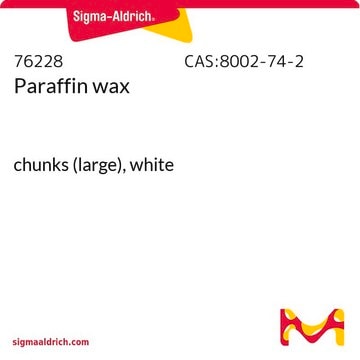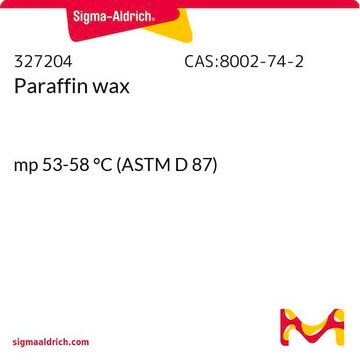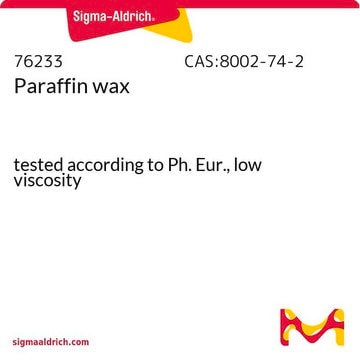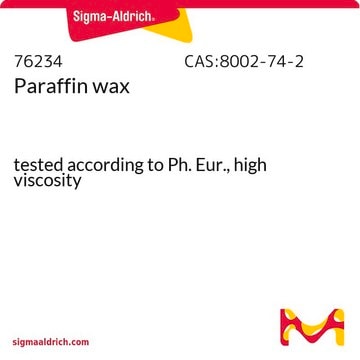Recommended Products
grade
purum
Quality Level
form
crystalline (chunks)
powder or solid
transition temp
solidification point 60-65 °C
InChI key
JWHAUXFOSRPERK-UHFFFAOYSA-N
Looking for similar products? Visit Product Comparison Guide
Storage Class Code
11 - Combustible Solids
WGK
nwg
Flash Point(F)
602.6 °F - Pensky-Martens closed cup
Flash Point(C)
317 °C - Pensky-Martens closed cup
Personal Protective Equipment
dust mask type N95 (US), Eyeshields, Gloves
Choose from one of the most recent versions:
Already Own This Product?
Find documentation for the products that you have recently purchased in the Document Library.
Customers Also Viewed
Laiguo Chen et al.
Journal of chromatography. A, 1274, 36-43 (2013-01-05)
Accurately quantifying short chain chlorinated paraffins (SCCPs) in soil samples with gas chromatograph coupled with electron capture negative ionization mass spectrometry (GC-ECNI-MS) is difficult because many other polychlorinated pollutants are present in the sample matrices. These pollutants (e.g., polychlorinated biphenyls
Zhi-Yong Zhang et al.
Journal of hazardous materials, 243, 105-111 (2012-10-31)
In this study, nanoscale zero-valent iron (NZVI) particles were synthesized and used for the reductive dehalogenation of short chain chlorinated paraffins (SCCPs) in the laboratory. The results show that the dechlorination rate of chlorinated n-decane (CP(10)) by NZVI increased with
Lindy Rauscher et al.
Journal of hazardous materials, 241-242, 441-449 (2012-10-24)
Surface waters impacted by urban runoff in metropolitan areas are becoming increasingly contaminated with polycyclic aromatic hydrocarbons (PAHs). Slow-release oxidant candles (paraffin-KMnO(4)) are a relatively new technology being used to treat contaminated groundwater and could potentially be used to treat
Xue-Tong Wang et al.
Environmental science and pollution research international, 20(7), 4742-4749 (2013-01-08)
Short-chain chlorinated paraffins (SCCPs) are extremely complex technical mixtures of polychlorinated n-alkanes with carbon chain lengths from C10 to C13 and chlorine content between 49 and 70%. SCCPs are under consideration for inclusion in the Stockholm Convention on persistent organic
[Paraffin throughout history].
I Maatouk et al.
Annales de dermatologie et de venereologie, 140(2), 154-156 (2013-02-12)
Our team of scientists has experience in all areas of research including Life Science, Material Science, Chemical Synthesis, Chromatography, Analytical and many others.
Contact Technical Service
